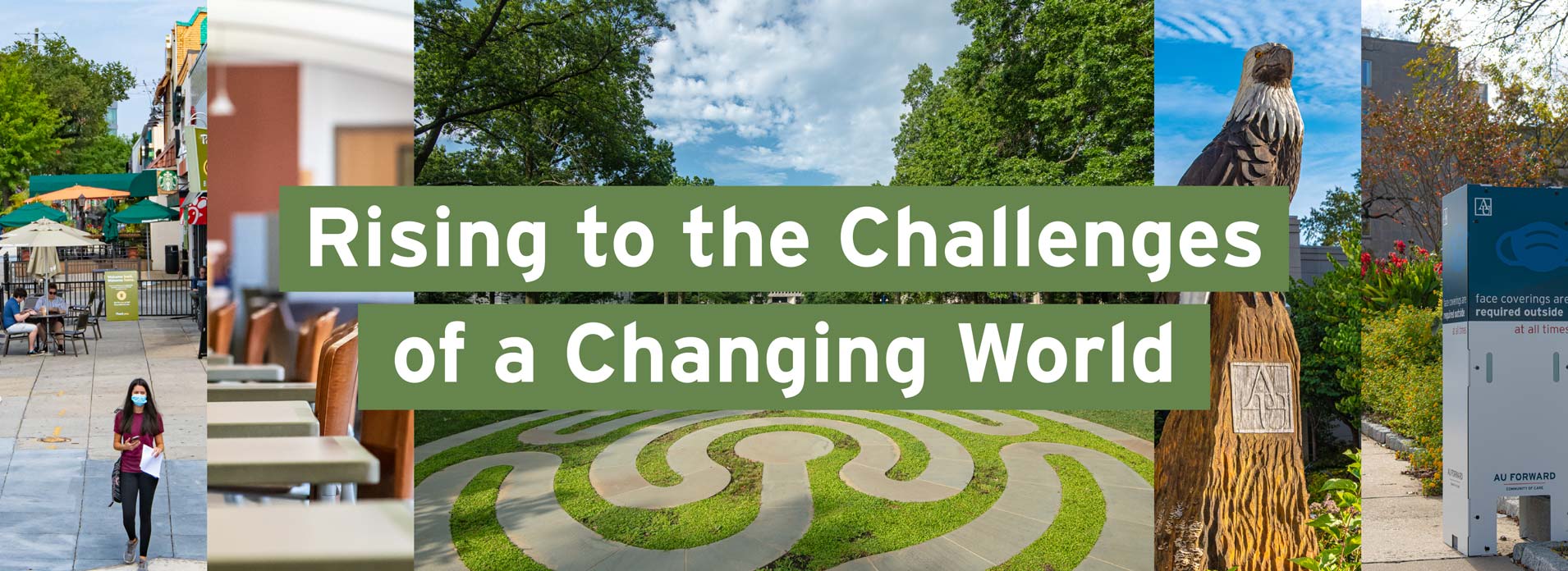To protect the health and safety of the community, the university delayed the beginning of the spring semester for undergraduates by one week and cancelled spring break. Instead, students were able to recharge and focus on their personal well-being during Wellness Week, with classes held but no written assignments, required reading, quizzes, or exams.
After extensive planning, safety preparations, and coordination with DC health officials, the university held its first in-person commencement experiences since 2019 over the first three weekends in May 2021. During in-person processionals, which were in addition to online celebrations, President Burwell, Acting Provost Starr, and school deans greeted 2021 and 2020 graduates as they took part in a time-honored tradition—crossing the Bender Arena stage as their names were called.
The advent of the COVID-19 vaccines in December 2020 allowed us to increase activity and remain on-course to return to in-person operations in the fall. AU partnered with Gallaudet University to fund a mobile testing laboratory that could process 50,000 COVID saliva tests a week and provided physical space and utility hookups for its operation. AU’s health and safety ambassadors checked visitors into the university’s testing clinics and showed them how to take the tests, provided education on health policies, modeled safe behavior, and offered encouragement.
They also answered questions not related to COVID. Alice Wang, Kogod/BSBA ’22, said she looked at her role as an ambassador kind of like a big sister, embracing her community-building role as she welcomed new students and filled them in on things she’d had to figure out on her own, like the best restaurants in Tenleytown or how to navigate the shuttle system schedule.



















